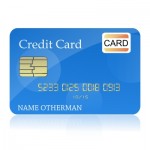
What is the current practice?
Many businesses charge a fee for use of a credit or debit card and in many online transactions this charge is not made clear at the outset. Charges are decided by the supplier and usually bare no resemblance to the cost involved in processing the transaction.
This practice is particularly prevalent in the travel industry with fees in the region of £50 not uncommon for return flights for a family of four, if paid for by credit card.
What prompted the OFT investigation?
In March, Which? called on the OFT to investigate the practice of charging a fee for credit card payments beyond the actual cost of processing the transaction. Which? also asked for more transparency in the fees charged, with this cost made clear out the outset of any transaction, as well as an alternative payment method offered to avoid the fee entirely
What will happen now?
Well, firstly EU lawmakers passed rules last week on consumer rights which prohibits traders from charging fees exceeding the cost of processing any card transaction from 2014.
The OFT have called on the Government to act now and outlaw entirely the practice of charging for debit card transactions, where the real cost is only 20p. In addition, the OFT has called on retailers to improve the transparency of their charges at the outset of any transaction. Companies who do not comply could face prosecution under the Consumer Protection Regulations.
Conclusion
This is clearly a move in the right direction but falls short of actually outlawing the practice of charging for using a debit/credit card. Clearly there is a cost in processing a card transaction, but hasn't there always been a cost for businesses in dealing with cheques? My worry is that the existing charge will just be added to the price of the goods or service. The OFT estimates that in the airline industry alone customers paid £300 million in charges in 2008 so companies are unlikely to take this lying down. But at least there is now hope that we will soon be able to compare prices between suppliers more accurately.